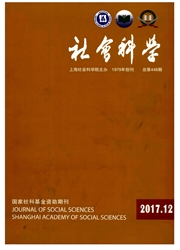

 中文摘要:
中文摘要:
一直以来,腐败的跨文化比较工作在学界有所缺失。在对OECD数据库39个国家模糊集定性比较分析的基础上,研究发现,清廉国家除了平权加个人主义的市场理性模式之外,还存在法国、日本等容许较大权力差距认同的其他模式。相比之下,三种腐败国家模式的共同之处在于监管不利。其中常规模式和俄罗斯/韩国模式可分别以日本和法国模式为转型的借鉴目标。制约腐败的中国模式转型之关键,在于“变通”的文化特质并不为任何一种清廉国家模式所具备。
 英文摘要:
英文摘要:
Existing research pay little attention on the social and cultural roots for corruption. This paper accordingly developed ideal types for both corrupt and incorrupt states, by introducing the Hofstede's cross-cultural comparative model and the fsQCA tools, using 39 countries' sample in OECD database. Two "minority" incorrupt states' ideal types with the representative of France and Japan were found along with the typical free market mode featured by equal rights and individualism. And generally speaking, all the three types of corrupt states have bad "governance" infrastructure for anti-corruption as the bottleneck. While the situation in China is more serious, for more structural adjustment should be made targeting the "biantong" (little uncertainty avoidance) which deeply roots in Chinese culture.
 同期刊论文项目
同期刊论文项目
 同项目期刊论文
同项目期刊论文
 期刊信息
期刊信息
